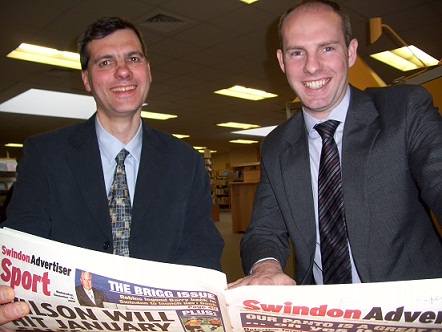
There are many reasons why people enter politics. For me, it was about making a positive change. If I could leave office having achieved this for Swindon, I would be happy. It is therefore an immense privilege to be able to say that I will leave office one day having made a difference not only to every child in Swindon, but every child in the country.
One of the first campaigns I started in Parliament called for compulsory financial education to be taught in all schools as a part of the National Curriculum. Our world grows financially more complex by the day, with mobile tariffs, student loans and financial products to deal with from an increasingly young age. It is essential that young people leave school with the financial skills to deal with this.
The campaign had humble beginnings. I asked a simple Parliamentary Question calling for compulsory financial education. Within days, I had met the national financial education charity PFEG, Martin Lewis from MoneySavingExpert.com and Carol Vorderman, all keen to support my campaign.
We set up an All-Party Parliamentary Group (APPG), a cross-party forum to promote our campaign. Overwhelmed with the support, we signed up 251 MPs and became the largest APPG in Parliament. From here, we took the time to do things properly, setting up a comprehensive six-month inquiry, gathering evidence from over 1000 submissions. The report we produced was measured and well supported, setting out why and how we were calling for compulsory financial education. This was immediately fed into the national curriculum review.
We then launched a national e-petition and within weeks had attracted the 100,000 signatures needed to trigger a Parliamentary debate, allowing us to keep our campaign on the Minister's radar as the national curriculum review continued. The events, meetings and Parliamentary Questions continued.
Yesterday, two years of hard work paid off. The Government announced the results of the National Curriculum review. Financial education is now included in two compulsory programmes of study. The Mathematics curriculum will now ensure that students are taught the skills to solve financial problems. This could be, for example, working out the repayments on a loan. Students will also be exposed to topics such as budgeting, financial products, risk, taxes and debt as a part of Citizenship studies.
I am certain that this will make a fundamental difference to every young person in Swindon and beyond. Not only are financial skills vital in everyday life, they also lay the foundations for entrepreneurial students to make the break into business, something else about which I am passionate. That every young person will now have this financial grounding, is something of which I will always be very proud.

